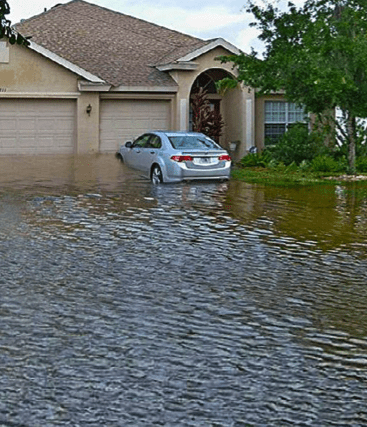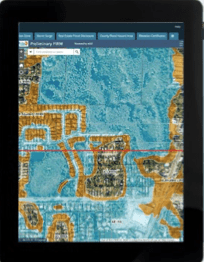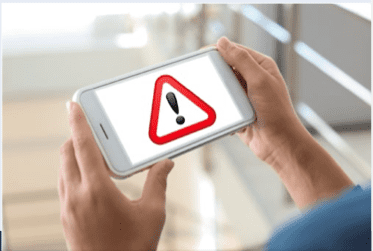Your Guide To Flood Information in Pinellas County
Know Your Risk for Flooding

Pinellas County often has storms that cause flooding. Flooding can occur when there is heavy rainfall or a tropical weather event anywhere in the county.
Everyone lives in a flood zone, which may be high, moderate or low flood risk.
Evacuation zones are based on a property’s vulnerability to storm surge from a hurricane.
You should know both your flood zone and evacuation zone.
Find Out Your Flood Risk

Look up your property at Pinellas County’s Flood Map Service Center to see if your property is in a high, moderate or low-risk flood zone or a floodway. Know what your evacuation zone is and how deep a flood may be.
Purchase Flood Insurance
Protect your home or business and your belongings with a flood insurance policy. Flood insurance is required for federally-backed mortgages on buildings in high-risk flood zones. Anywhere it rains, it can flood, so flood insurance is recommended, even if it is not required by your lender.
Most homeowners’ and renters’ insurance policies do not cover losses due to flooding. A new policy takes 30 days to take effect, so don’t delay.
Understand What is Covered
There are separate flood coverages for contents and the building. Condominium association flood policies typically cover common areas and certain building elements within the unit.
Find out what your homeowners’ and flood insurance policies cover and do not cover. Also, find out about your building and contents deductible amounts.
Understand Policy Rates
National Flood Insurance Program (NFIP) rates do not differ from company to company or agent to agent.
They depend on many factors, such as the flood risk, the lowest floor elevation of the building and the date and type of construction of the building.
Elevation Certificates have all of the information needed to write a flood policy. Find out if an elevation certificate is available for your property.
Get Your Flood Insurance Questions Answered
Insurance can be a complicated topic, so Pinellas County offers free flood insurance technical assistance from flood insurance advocates, professionals in the insurance field who provide reliable information about your flood risk, flood insurance options and how to purchase a policy. View a complete listing of flood insurance advocates.
Know Your Evacuation Zone and Prepare Ahead
To know when to evacuate for hurricane surge flooding, you must know your evacuation zone. Find your evacuation zone, routes and shelters.
Having a plan in place for your business, family and pets before a flood or hurricane occurs can help avoid confusion and prevent injuries and property damage.
Download the Ready Pinellas App to look up your evacuation zone, create an emergency plan, get supplies and use the checklist to get everything done before the storm. Download the app for free on your mobile device through the Apple App Store or Google Play, or visit our Flood Warning System page for more information.
Keep Your Family Safe From a Flood
Stay Connected and Informed

- Tune in to local news stations or NOAA weather radio stations 162.450 or 162.550.
- Follow Pinellas County on Facebook, Twitter and Nextdoor to stay informed.
- Sign up for Alert Pinellas. This free service will call, text and email you with important notices if flooding or other emergencies are expected in your area.
Build Smart
Get Permits and Hire a Licensed Contractor
Find out what building permits you may need and hire a licensed contractor.
Building permits protect our residents, the community and buildings by ensuring all proposed work complies with current codes, standards, ordinances and construction techniques. Pinellas County requires a permit for any new building, addition, remodeling, demolition, or work in excess of $500 or that would require an inspection to ensure that all construction is safely completed.
Be Aware of Substantial Improvement Rules (50% Rule)
Remodeling projects that cost half of the value of the original structure will require you to elevate the building above the flood level.
Houses substantially damaged by fire, flood or any other cause must be elevated above the regulatory flood level when they are repaired.
Protect Your Property
- Inspect and clear your gutters frequently.
- Install sewer line check valves to prevent sewer backup flooding.
- Mark your fuse or breaker box to show the circuits to areas vulnerable to flooding.
- Elevate your equipment, such as water heaters, AC units, etc.
- Raise switches, sockets, circuit breakers and wiring.
- Consider elevating your house above flood levels.
Staff is available for drainage evaluations and one-on-one consultations about how to protect your property from flooding. Call Pinellas County’s Flood Information Services at (727) 464-7700 for more information. If you live in a municipality, you may contact your city directly.
Visit the Flood Mitigation page for information about the FEMA Flood Mitigation Program, FEMA Hazard Mitigation Program and Increased Cost of Compliance funding.
National Flood Insurance Program (NFIP)
Community Rating System (CRS)
Because Pinellas County and most of its municipalities provide the flood services mentioned on this page and participate in the NFIP CRS, residents and businesses may get up to a 25% discount on their flood insurance premiums. The savings adds up to more than $5.5 million dollars per year for unincorporated property owners and more than $25 million per year countywide.
Make sure your flood insurance policy is rated correctly and you are receiving the correct CRS discount. With your continued support, there is an opportunity to save even more in the future.
Prevent Flooding
Prevent flooding by keeping storm drains and waterways clear.
- Keep leaves, grass clippings and other debris out of storm drains and waterways to reduce pollution that can lead to algae blooms and fish kills.
- When storm drains get clogged with debris they can back up with water and flood yards and homes.
- Remember, only rain don the drain. It’s the law, Ordinance #06-13.
- To report illegal dumping, go to the Pinellas County app or call (727) 464-4425.